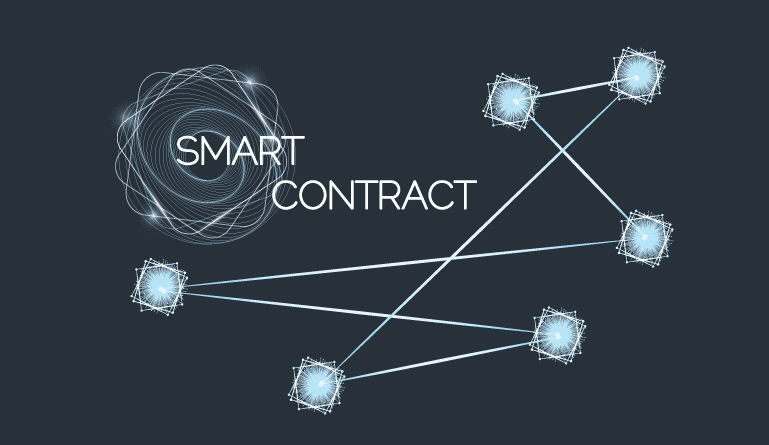
In the quest to harness blockchain technology for its security, access, and transparency benefits, businesses are delving into smart contracts as a primary area of exploration. A smart contract is a blockchain-based application that facilitates the execution of contractual terms. While blockchain technology is often associated primarily with Bitcoin, its potential applications extend far beyond cryptocurrency.
Nick Szabo, a U.S. computer scientist who conceptualized a virtual currency named “Bit Gold” in 1998, first proposed smart contracts in 1994. However, it was only after the advent and widespread adoption of blockchain technology that the peer-to-peer data checks crucial to smart contracts became technically feasible. Today, smart contracts are rapidly gaining recognition as a form of legal tender.
Smart Contracts Explained
Smart contracts are blockchain-based programs that activate when specific criteria are met. They can automate the execution of a contract, ensuring all parties are immediately aware of the outcome without requiring an intermediary or experiencing time delays. Moreover, they can manage workflows by initiating subsequent steps when specific requirements are met.
A smart contract operates similarly to a traditional contract but also autonomously enforces its terms. They execute precisely as programmed by their developers and are binding through code, much like traditional contracts are through legislation.
Given that these contracts operate based on the automatic exchange of data, companies using this technology tend to be more data mature. Gartner predicts that by the end of 2023, businesses using blockchain smart contracts will improve data quality by 50%.
How Smart Contracts Work
To understand how smart contracts work, here are the key steps and concepts:
- Supporting physical contracts: Sometimes, smart contract code is the only manifestation of the parties’ arrangement. Or, they can enhance a conventional text-based contract by executing certain clauses, like the transfer of financial resources from Party A to Party B.
- Blockchain storage: In a blockchain, the code undergoes replication across multiple nodes. Consequently, it gains from the safety, permanence, and immutability inherent in a blockchain.
- Automated execution: Replication within the blockchain also implies that the code is regularly executed whenever an additional block is included in the blockchain. If the two parties conduct a transaction that suggests certain parameters are satisfied, the code will implement the action prompted by the parameters in question. If there is no transaction, the code will take no action.
- Dedicated languages: The majority of smart contracts are drafted in a programming language like Solidity that’s specifically designed for use in computer programs like these.
- Simple logic: Currently, a smart contract’s input parameters and execution phases have to be very specific, unbiased, and clear. In other words, if “x” occurs, proceed to perform action “y.” Therefore, the actual duties carried out by smart contracts are relatively simple, like the automatic transfer of cryptocurrencies from one party’s vault to another when specific criteria are fulfilled.
- Gas fees: A supplementary stage is required ahead of a smart contract’s execution: the payment of a transaction charge referred to as a gas cost. Implementation of a smart contract will cause a rise in “gas costs” – based on its complexity. Currently, this serves as a crucial barrier to prevent overly complicated or multiple smart contracts from overpowering computing systems.
- Focus on financial transactions: Right now, smart contracts are most suitable for autonomously completing two distinct kinds of transactions: assuring the payment of funds upon the happening of specific trigger events and implementing monetary penalties whenever objective conditions aren’t met.
As blockchain adoption expands and assets are tokenized or moved “on-chain,” smart contracts are expected to evolve, potentially handling more complex transactions in the future.
5 Smart Contract Features
Smart contracts are characterized by several key features:
- Fixed outcomes: When the necessary conditions meet the criteria, only then can smart contracts perform the functions meant for them. The final result is the same no matter who initiates the smart contract.
- Autonomous execution: There’s no participation by a third party. The contract goes through negotiations directly between the two parties, with no intermediaries involved. This minimizes the possibility of coercion, intimidation, or favoritism, allowing all parties equal authority.
- Full transparency: The code for smart contracts remains permanently recorded on a decentralized public ledger (A.K.A., the blockchain), making it available to all parties. Further, everyone on the network has access to a copy of the smart contract’s conditions, which cannot be amended by either party.
- Low effort: There’s no need for a third party to validate the contract’s legitimacy or ensure that the necessary conditions are fulfilled. Due to automated capabilities, smart contracts are self-verifying. Moreover, they are self-executing when all conditions and regulations are met.
- Encryption by default: Cryptography ensures that the particulars of the contract are secure. Even if someone violates the encryption, they’ll have to modify all blocks following the one they breached. This is an extremely challenging and computationally intensive endeavor, making it almost inconceivable for a small or medium-sized organization.
6 Use Cases for Smart Contracts
Smart contracts can be used by companies in:
- Procurement: Smart contracts might eliminate a company’s procure-to-pay deficiencies. When a product arrives at a warehouse and is detected, a smart contract can instantly initiate requests for the necessary approvals and, when obtained, transmit funds directly from a consumer to the vendor. Sellers would get paid promptly, and purchasers would minimize their account payable expenses.
- HR process automation: In HR, smart contracts may record a person’s educational qualifications, accreditation, as well as experience. This can prevent resume fraud, which is a major challenge for HR professionals. They can automate and speed up recruitment, without compromising on candidate quality.
- InsurTech: Each year, the insurance industry invests millions in handling claim information and management. Smart contracts enable the automatic calculation of payment quantities according to the category of policy. This will also alleviate customer frustrations while improving collections.
- Supply chain management: The supply chain might benefit from smart contracts. They may mitigate the risk of larceny or fraud and also enable entities to monitor stock and finance logistics. Using smart contracts, it is possible to streamline schedules, supervisory documents, invoices, and disclosures.
- Inheritance and estate planning: Claiming an inheritance shortly after the demise of a loved one is another infamously sluggish judicial procedure. Smart contracts can be incorporated into an estate plan to distribute digital assets autonomously upon a person’s demise, potentially eliminating the necessity for probate proceedings.
- Digital identity monetization: In a future built on blockchain, individual user identities could be tokenized. Consequently, each individual’s identity would be recorded on a blockchain. Smart contracts allow users to derive revenue from and control transactions on social networking sites or with banks.
In Summary: Considerations for Smart Contract Implementation
While smart contracts offer versatility and support numerous use cases, it’s vital to remember that they cannot be altered if they contain errors and cannot access data from off-chain sources, meaning they cannot respond to real-world events. This can be both an advantage (protecting consensus) and a risk for involved parties.
As organizations increasingly embrace blockchain, smart contracts stand out as a primary entry point. When implemented correctly, they have the potential to streamline numerous data and transaction-related processes, both new and existing.
Next, read about the top five crypto trends concerning industry professionals right now.







